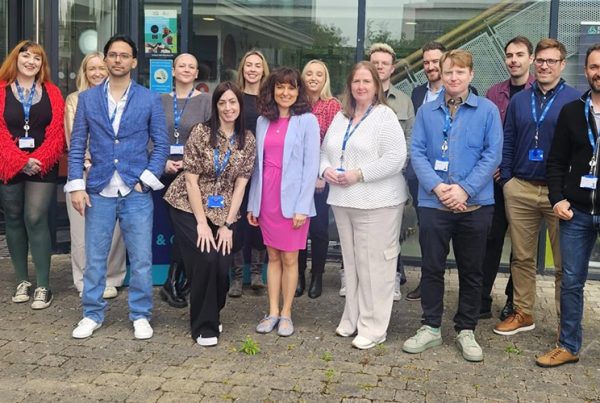
We can measure nearly anything these days. Analytics are everywhere… and we are increasingly becoming swamped with data as more and more is produced. But what does this mean for businesses, and for startups in particular?
The world has fundamentally changed. Each morning, I no longer look out of the window to see if it is raining or whether I should wear an extra jumper. I simply open my yr.no app and check the temperature range for the day and the likelihood of rain (especially during my cycle to and from the office). I can do this all from the comfort of my bed, even before the curtains have been pulled back. This shows the power of data to improve even the little things in our lives – though sometimes the accuracy of the rainfall does leaves a little to be improved!
We started our company, EnergyElephant, with this idea in mind. A simpler world made easier with the power of technology. Every day, we are bombarded with more information than most people would have experienced in a week just a few years ago. This has led to some data analysis paralysis or, worse, data collection with no actionable intelligence derived from it (or as I like to say, data collection for the sake of data collection).
Start seeing data as an asset
In my own experience as an engineer, I found more and more of my time was being consumed by excel spreadsheets and carrying out analysis of data sets for small and large companies. What interested me most was watching how energy assessments were carried out and how inefficient they were. An energy assessor would spend a few hours just extracting data from electricity and gas bills into spreadsheets to produce graphs on how the energy was used and where savings might be found.
Then they would spend the remainder of their time walking around and reviewing options for improving energy efficiency. Up to half their time was spent on data extraction and analysis, meaning that the real objective – finding areas for improving energy efficiency – was losing out. We also noticed businesses with large energy bills of up to €70,000 per year that did no analysis of their bills to see what savings they might be missing out on.
Our solution was to build a software platform where anyone could upload their electricity or gas bills and get the insights into their usage immediately. This system could be used by anyone – from the lay person up to the best energy professionals – to help them become more energy efficient.
Every business is a digital business
Businesses are faced with these similar problems every day. Many times they can take from the real work to be carried out. How many businesses spend time trawling through spreadsheets when they could be out doing far more productive things, like keeping their customers happy or gaining new ones?
The future of data will be one of continued exponential growth. Businesses must learn to deal with timely actions from the insights these data sets create. Increasingly, real-time actions are required but this really depends on the business type and whether what they do is time-critical. Website owners know this only too well – by the time they have reviewed a spike in their traffic it is too late to action moving these viewers through their on-boarding funnel.
But real-time or not, data is changing how we do business, and companies that successfully combine their domain expertise with data science will out-compete their rivals every time.
Use data to make better decisions
Every business generates data; no matter how small it is and regardless of what it does. If you have a website or social network accounts, if you have clients and take payments… all of this can provide you with data that can be analysed. By collecting this data in a systematic way, you can start to inject analytics into every business decision you make.
There are a huge number of analysis tools, and many of them are either free or have a free trial. Storing data has become easy and cheap, so you can complete your data with as much information as you have access to. You might be able to record customer complaint messages, access logs, abandoned carts, GPS information, etc.
My advice for data analytics would always be start with what your end objective is. Decide what question you have and what type of answer you need. Then identify the data you’ll have to collect and how you will analyse it. The next step is to source that data, structure it and query it – if you don’t have the expertise in-house to do this, there are thousands of platforms out there to cover any area of interest: marketing, customer relations, search and web traffic, business intelligence, finances, sales, etc. Once you start to get results, you need to validate them and apply the answers you’re getting. Once that’s done, you’ll be able to measure your results.
About the author
 Joe Borza
Joe Borza
Joe Borza is a New Frontiers past participant, and CEO and co-founder of EnergyElephant, a smart energy assistant.
Joe graduated from Trinity College with a degree in Engineering and went on to obtain a Masters in Sustainable Development at DIT. A chartered engineer, he has worked for over a decade as an consultant in Ireland and abroad, and lectures part-time in Trinity College on smart energy technologies, energy use in built environments and entrepreneurship.
 Joe Borza
Joe Borza








